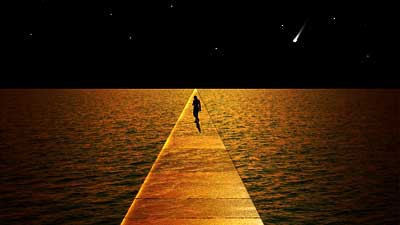
I found this 2016 Scientific American article by the science journalist John Horgan extremely interesting:
Horgan, it seems fairly obvious, is a naturalistic materialist. Such reductionism is the overwhelmingly preferred general model for contemporary studies of mind. But his unhappiness with the direction in which the “science of consciousness” or the study of the “mind-body problem” currently tends is quite revealing.
Based upon several years of experience with the daily posts from my blog’s most vocal atheist ideologue, I could easily write his response myself: Gods (for whose existence there is no evidence) were invoked for most of human history to explain every question, but science has relentlessly reduced the area where theism has anything to explain. And we can be confident that this process will continue. Thus, we know that there is a naturalistic explanation for consciousness, which is secreted by the brain essentially the same way that bile is secreted by the liver.
The British molecular biologist Francis Crick (1916-2004) — winner, with James Watson and Maurice Wilkins, of the 1962 Nobel Prize in Physiology or Medicine for discovering the double helix structure of DNA — put this notion very clearly in his 1994 book The Astonishing Hypothesis: The Scientific Search for the Soul:
“You,” your joys and your sorrows, your memories and your ambitions, your sense of identity and free will, are in fact no more than the behaviour of a vast assembly of nerve cells and their associated molecules. As Lewis Carroll’s Alice might have phrased it: “You’re nothing but a pack of neurons.”
But, thus far at least, science has not demonstrated this to be the case. And the proliferation of contradictory explanations for consciousness — not to mention the rise, particularly among certain philosophers of mind, of the “mysterian” position, which holds that the problem of the origin of consciousness is humanly insoluble — suggests that there may be problems for Crick’s view.
Could it be that mind is primary? Irreducible?
Could it be that ideologues such as my frequent commentator are resorting to an argument that might be called “naturalism of the gaps”?
Wouldn’t it be better, at this stage, to say that we simply don’t know, scientifically speaking, how consciousness arises, nor precisely how mind and brain are related? After all, as Crick also says in The Astonishing Hypothesis:
“You cannot successfully pursue a difficult problem . . . without some preconceived ideas to guide you. . . . But to a scientist these are only provisional beliefs. He does not have a blind faith in them.”
***
A small grab bag of science news that has recently caught my attention:
It gives new meaning to the concept of “potentially explosive archaeological discoveries”:
I’m not exactly sure what the “rotation” of the universe would mean. Against what stationary background or standard would it rotate, anyway? But the answer to the question seems to be “very likely No.”
And here’s a question (accompanied by its answer) that I’m sure very few of you have been asking:
“Was Holy Communion celebrated during the first moon landing 50 years ago?”










